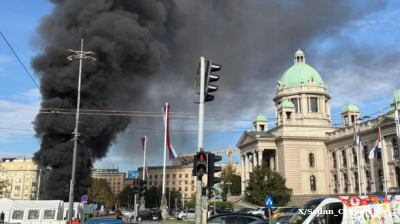The UK on October 22 imposed sanctions on gang leaders, passport forgers and financiers accused of enabling people-smuggling through the Western Balkans, in what the government called a major step to disrupt illegal migration routes to the UK.
The measures target Balkan-based criminal networks involved in producing fake travel documents and an illicit financial group accused of supplying small boat engines to smugglers, the Foreign Office said in a statement.
The sanctions, which freeze UK-based assets and ban travel to Britain, were announced as Prime Minister Keir Starmer hosted Western Balkan and European leaders in London for a summit focused on migration, regional security and economic cooperation.
“There’s a criminal route through the Western Balkans bringing illegal migrants to the UK, and we’re determined to shut it down by working with European partners,” Starmer said. “Our joint efforts have already halved irregular border crossings and cut Albanian small boat arrivals by 95%.”
Foreign Secretary Yvette Cooper said the Western Balkans “is a major transit route for ruthless people-smuggling gangs who trade in human suffering,” adding that Britain’s sanctions regime was a “crucial tool” to expose and dismantle the networks that support them.
Those sanctioned include members of the Krasniqi network, a Kosovo-based gang accused of running a sophisticated forgery operation that produced fake passports, identity cards and driving licences for more than 50 countries, including the UK.
Among those listed are gang leader Burim Krasniqi and several associates involved in the production and distribution of forged documents.
Also named is Nusret Seferović, leader of a Croatian gang that supplied counterfeit Croatian passports to organised crime groups across the Balkans, including the Škaljari and Kavač gangs, both already sanctioned under the UK’s global irregular migration regime.
The UK also sanctioned ALPA Trading FZCO, part of the ALPA Network, which the government said was used to launder money and procure small boat components for smuggling gangs. Two Iranian nationals, Ali and Vahid Derakhshan, were named for their roles in running the network.
The government said the sanctions form part of a broader crackdown on criminal groups behind illegal migration. Cooperation with Western Balkan countries has already contributed to a sharp reduction in migrant crossings through the region — from over 140,000 in 2022 to just over 21,000 in 2024, according to Frontex data cited in the statement.
Earlier this month, Cooper announced GBP10mn (€11.5mn) in new funding to combat people-smuggling in the Western Balkans, including enhanced law enforcement training in Kosovo and reinforced border security in Serbia.
“Working alongside our partners in the region, we are taking decisive action to secure our borders and make us stronger here at home,” Cooper said.
The sanctions are the latest move under Britain’s Global Irregular Migration Sanctions Regime, which targets individuals and entities facilitating illegal migration and human trafficking around the world.
News
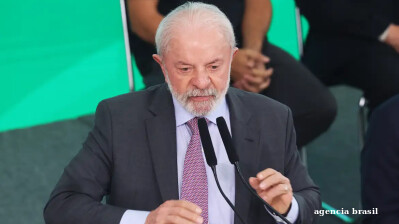
Brazil's Lula announces fourth presidential run at 80
Brazilian President Luiz Inácio Lula da Silva has announced he will seek re-election in October 2026, confirming his candidacy during a state visit to Indonesia on October 23.
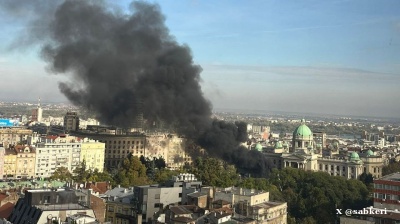
Serbian president blames opposition for “terrorist attack” outside parliament
President Vucic blamed opposition groups for what he described as a “terrorist act” outside the National Assembly in Belgrade, after a 70-year-old man opened fire on a camp of government supporters and set fire to one of their tents.
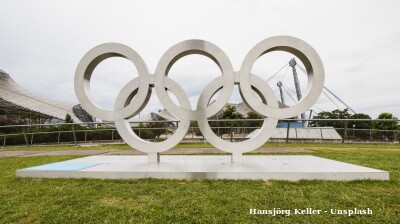
IOC sanctions Indonesia over Israel visa ban
The International Olympic Committee has announced that international sports federations will be advised not to hold competitions or meetings in Indonesia after the country barred Israeli athletes from entering.
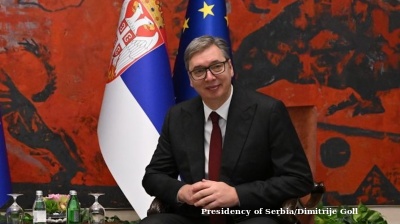
Serbian president accuses EU of backing “colour revolution” after European Parliament adopts harsh new resolution
MEPs back the toughest rebuke yet from Brussels towards Serbia in over a decade of EU candidacy.


